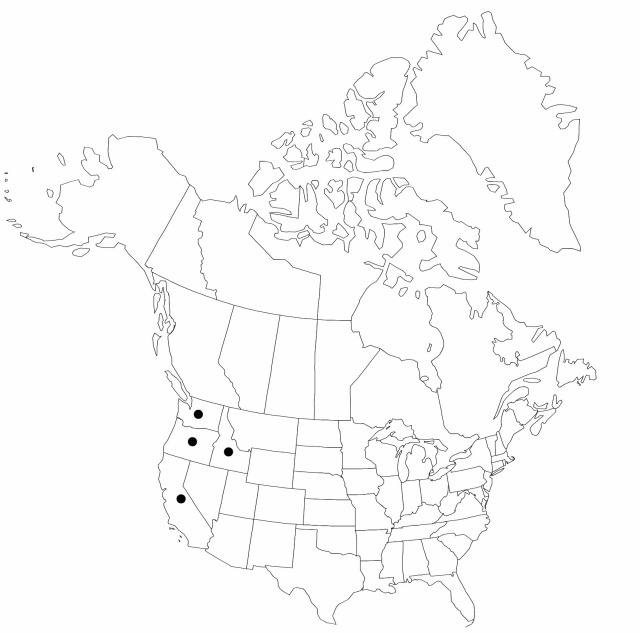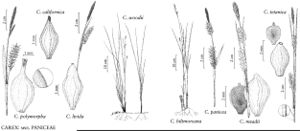Difference between revisions of "Carex californica"
Mem. Torrey Bot. Club 1: 9. 1889.
FNA>Volume Importer |
imported>Volume Importer |
||
| (4 intermediate revisions by 2 users not shown) | |||
| Line 6: | Line 6: | ||
|place=1: 9. 1889 | |place=1: 9. 1889 | ||
|year=1889 | |year=1889 | ||
| + | }} | ||
| + | |special_status={{Treatment/ID/Special_status | ||
| + | |code=F | ||
| + | |label=Illustrated | ||
| + | }}{{Treatment/ID/Special_status | ||
| + | |code=E | ||
| + | |label=Endemic | ||
| + | }}{{Treatment/ID/Special_status | ||
| + | |code=C | ||
| + | |label=Conservation concern | ||
}} | }} | ||
|basionyms= | |basionyms= | ||
| Line 32: | Line 42: | ||
-->{{#Taxon: | -->{{#Taxon: | ||
name=Carex californica | name=Carex californica | ||
| − | |||
|authority=L. H. Bailey | |authority=L. H. Bailey | ||
|rank=species | |rank=species | ||
| Line 46: | Line 55: | ||
|publication title=Mem. Torrey Bot. Club | |publication title=Mem. Torrey Bot. Club | ||
|publication year=1889 | |publication year=1889 | ||
| − | |special status= | + | |special status=Illustrated;Endemic;Conservation concern |
| − | |source xml=https:// | + | |source xml=https://bitbucket.org/aafc-mbb/fna-data-curation/src/2e0870ddd59836b60bcf96646a41e87ea5a5943a/coarse_grained_fna_xml/V23/V23_785.xml |
|genus=Carex | |genus=Carex | ||
|section=Carex sect. Paniceae | |section=Carex sect. Paniceae | ||
Latest revision as of 20:43, 5 November 2020
Plants colonial, long-rhizomatous. Culms 15–60 cm, scabrous to smooth distally. Leaves: proximal sheaths fibrillose, bladeless, purple tinged, 2–6 mm diam.; ligules 2–6 mm, as long as or longer than wide; blades of vegetative culms 10–30(–50) cm; those of fertile culms green, flat or folded, less than 18 cm × 1.5–5.5 mm. Inflorescences 4–19 cm, 1.2–2 times longer than proximal bract; proximal bracts 2–12 cm, sheaths 0.5–3 cm, blades 1.5–10 cm; pistillate spikes occasionally staminate at apex, linear-oblong, 1–3.5(–5) cm × 2.5–7 mm. Pistillate scales purple tinged, apex broadly acute or obtuse, sometimes subapically cuspidate, papillose. Perigynia loosely to densely arranged, 3.4–4.2 mm; beak not flared, 0.5–1 mm. Achenes pale to dark brown, (2–)2.3–2.7 × 1.6–2 mm.
Phenology: Fruiting early–mid summer.
Habitat: Rare and local in dry meadows, grassy slopes, and prairies
Elevation: 0–2100 m
Distribution

Calif., Idaho, Oreg., Wash.
Discussion
Of conservation concern.
Selected References
None.
